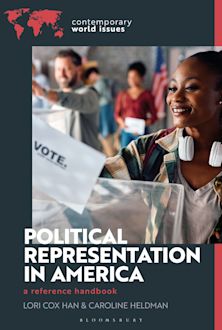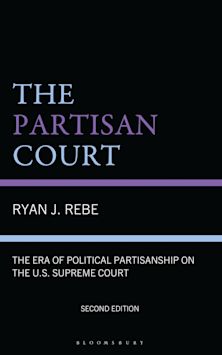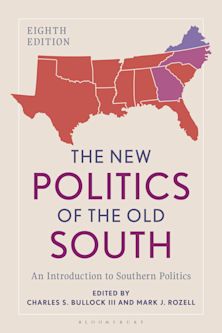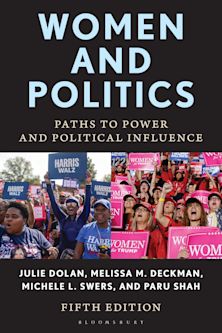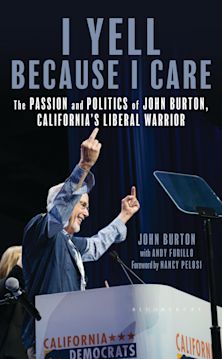- Home
- ACADEMIC
- Politics & International Relations
- American Government and Politics
- Reading Erna Brodber
Reading Erna Brodber
Uniting the Black Diaspora through Folk Culture and Religion
Reading Erna Brodber
Uniting the Black Diaspora through Folk Culture and Religion
This product is usually dispatched within 10-14 days
- Delivery and returns info
-
Free UK delivery on orders £30 or over
You must sign in to add this item to your wishlist. Please sign in or create an account
Description
June Roberts explores the complicated post-colonial infrastructure of Caribbean society and life as an African American through the work of Erna Brodber. Brodber's novels Jane and Louisa Will Soon Come Home, MYAL, and Louisiana all explore various facets of the Caribbean and African American experiences, and Roberts greatly adds to their value through her commentary and interpretation. While she uses Erna Brodber's books' organizing themes as a home base, Roberts doesn't limit her work to strict criticism and analysis of the novels. Instead, she traces countless issues as varied as the nuances of the Caribbean psyche, the importance of matriarchs, traditional slave dances, obeahs, Santeria and other African-based religious expressions, as well as politics and history, and the perspectives of past and present scholars of the Caribbean and African-American experience. Most importantly, Roberts investigates how the colonial system's exploitation and dehumanization of the black people affected their spirits. This text is broad enough to appeal to all enthusiasts of Caribbean and African-American topics, and it can especially benefit academic courses related to these topics.
Table of Contents
Origins of a Tradition: The Continuum of Caribbean Literature
The Informing Intellectual Climate
Interdisciplinary and Intercultural Social Constructions
Bodber's Discursive Position Within and Without Caribbean Literary Traditions and Tropes
Women Writers and Feminism: A Canon of Their Own Tropes and Concerns
Reading the Text: The Sometimes Ambiguous Kumbla of the folk in Jane and Louisa
Getting Out of the Physical Kumbla and Getting Back to the Spiritual Kumbla: Historisizing Textual Temporality
Reading Myal and Thwarting Spirit Thievery
The Location of Spirit Thievery
Redemption Allegories and Myalism
Tropes of the Harlem Renaissance-Minstrelsy and Early 20th Century Black Representation
African Spirituality: The Ultimate Connection
Intimations of Allegories of Unification
Epilogue
Notes
Product details
| Published | 30 Mar 2006 |
|---|---|
| Format | Hardback |
| Edition | 1st |
| Extent | 292 |
| ISBN | 9780313320743 |
| Imprint | Praeger |
| Dimensions | 235 x 156 mm |
| Series | Contributions in Afro-American and African Studies: Contemporary Black Poets |
| Publisher | Bloomsbury Publishing |
About the contributors
Reviews
-
Jamaican novelist, anthropologist, historian, and sociologist Erna Brodber became a prominent West Indian writer during the second half of the 20th century. Her Afro-centric works emphasize the importance of ancestral spirituality and aesthetics, connecting to a vital cultural past. This first full-length study of Brodber includes several chapters of pertinent background material, then detailed analyses of three of Brodner's novels: Jane and Louisa Will Soon Come Home, Myal, and Louisiana. Discussing such elements as allegory, irony, feminism, and syncretism, Roberts places Brodber within the context of the wider Caribbean and the Americas through comparisons with other writers, notably Zora Neale Hurston, Marcus Garvey, and W. E. B. Du Bois….Highly recommended. Upper-division undergraduates through faculty.
Choice
-
A Jamaica-born, US-based scholar of English, African-American, and Caribbean literature, Roberts examines representations of colonial and afrocentric spiritual relationships and practices in Brodber's fiction. She is particularly interested in her use of afro-diasporic religious beliefs and practices in the Caribbean, and her examination of how these values oppose colonial presumptions and social norms. She also wants to establish Brodber's importance as a member of the first generation of college educated diaspora descendants and radical intellectual workers during the 1960s.
Reference & Research Book News














